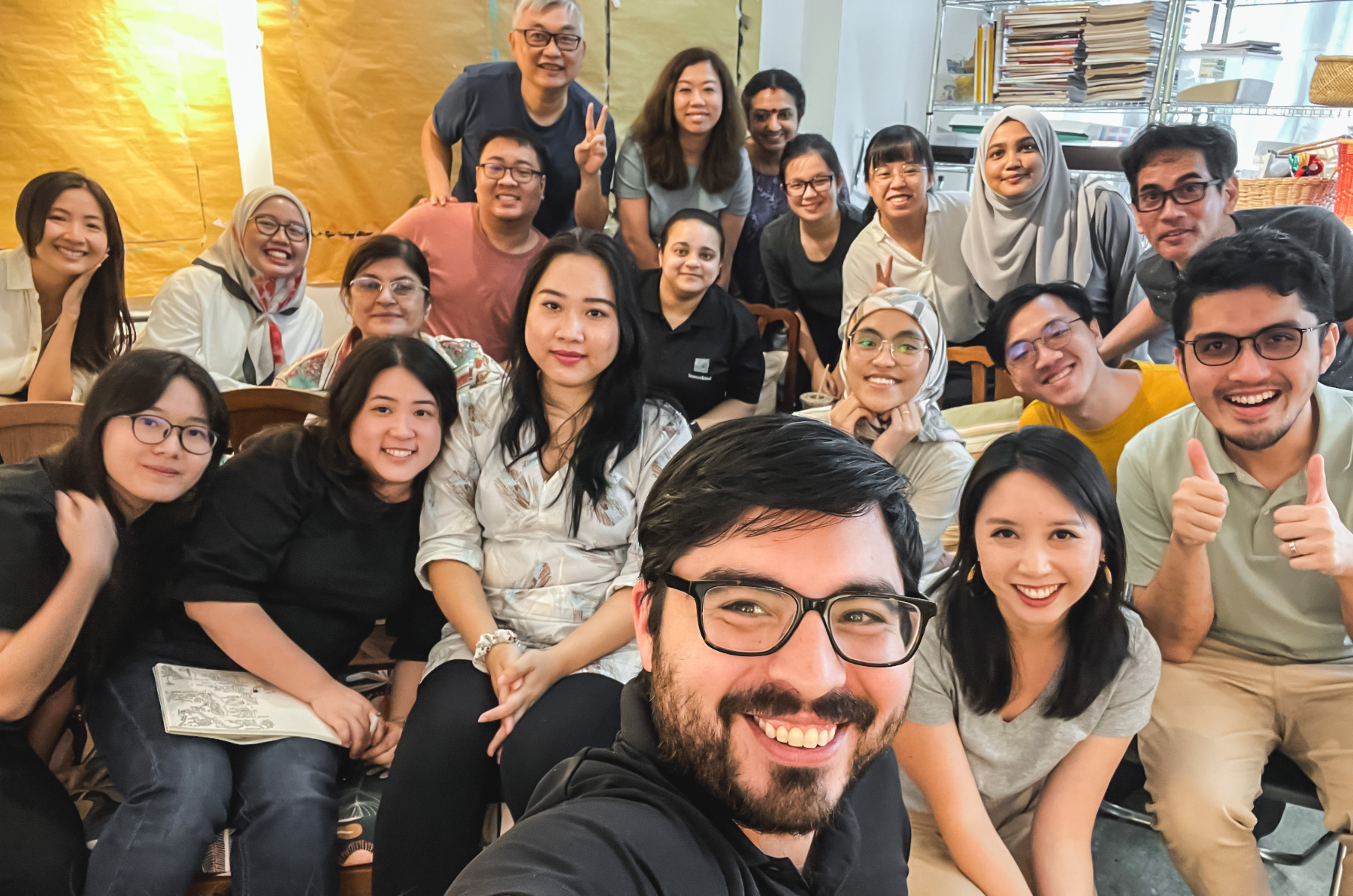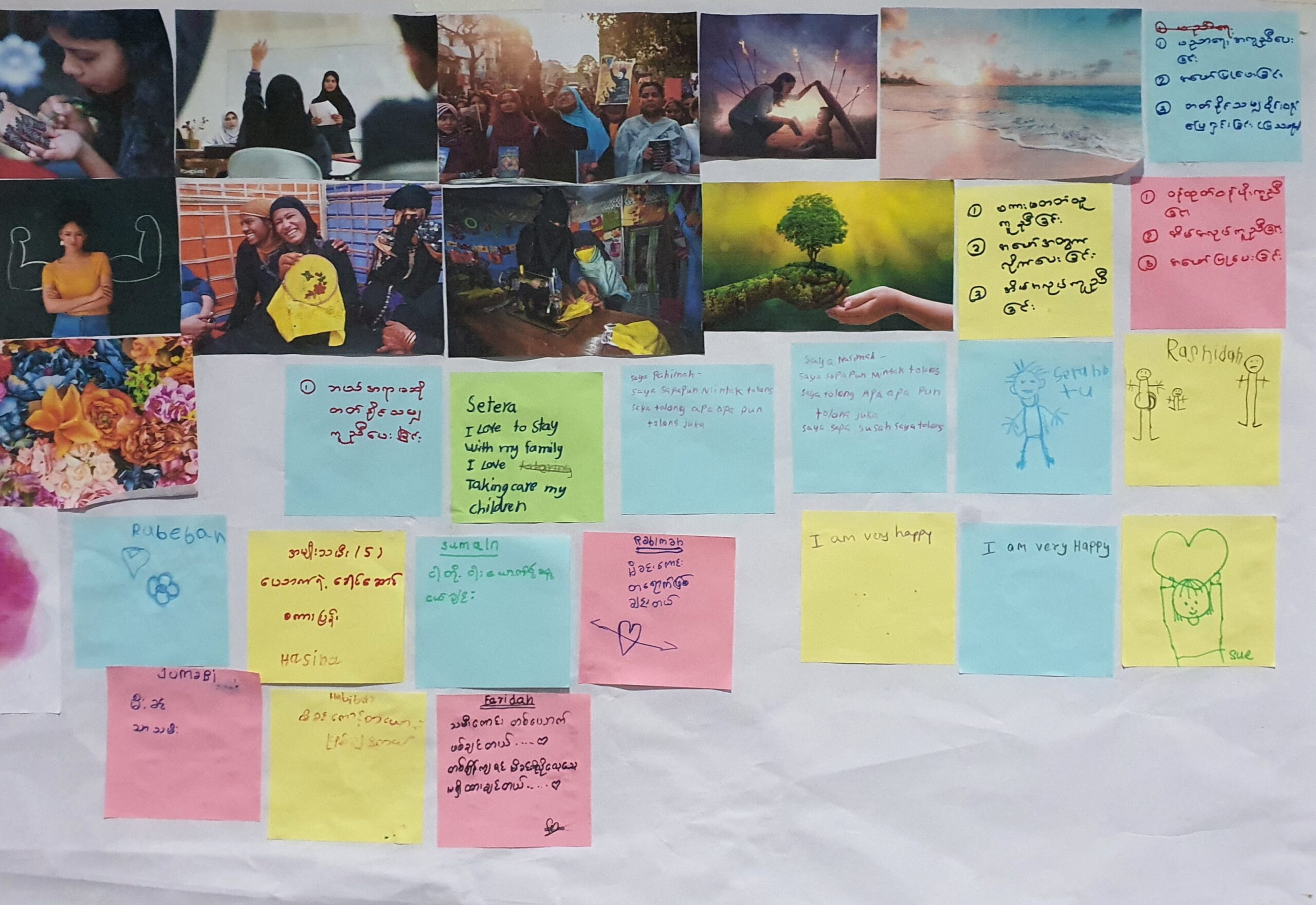Building mental health skills with refugee women
Cultivating psychological flexibility with marginalized communities in Malaysia
Building mental health skills with refugee women
Cultivating psychological flexibility with marginalized communities in Malaysia
From 2020 to 2023, in collaboration with HumanKind and the Rohingya Women’s Development Network (RWDN) in Malaysia, we’ve worked with marginalized leaders and their communities to develop programs rooted in their lived experiences. The initiatives aimed to cultivate psychological skills, agency, courage, and resilience. The foundation of the program was Acceptance and Commitment Training (ACT), an evidence-based model that enhances psychological flexibility—the capacity to interact with both external environments and internal experiences with openness, curiosity, and kindness.
What is the community’s story?
The Rohingya people of Rakhine state in Myanmar have experienced decades of marginalization, violence, and genocide. Many have fled the region to other countries, including Malaysia. In Kuala Lumpur, a Rohingya-woman founded collective helps women refugees connect with resources, find work, and access services that are made available to them. With local social organizations and provisions from the government and the UNHCR, many of these women and their families are seeking to build a new life in the midst of ongoing uncertainty and danger.
What was our partnership about?
As challenges continued for women in refugee communities, they wanted better ways to respond to the trama and chronic stress they experienced on a daily basis. This led to the partnership between Brio and HumanKind. Our initial design process centered on Rohingya refugee women of the Rohingya Women’s Development Network (RWDN) based in Kuala Lumpur.
With women leaders and community volunteers, we created the Resiliency Program in 2021. Based on Acceptance and Commitment Training (ACT), this evidence-driven program seeks to teach simple mental health skills that lead to psychological flexibility. In 2022, the program was piloted with a collaboration between facilitators from HumanKind and RWDN.
The key areas of partnership included:
- Designing effective programs with marginalized populations in Malaysia, centered on Acceptance and Commitment Training (ACT)
- Training and adaptation with local community organizations to strengthen leadership and staff
- Increasing program usability and accessibility through continued collaboration and innovation with local community members

What was the impact?
As a result of community engagement in the design, the program led to outstanding outcomes, including high levels of commitment and engagement from participants, as well as improved self-awareness, stability, mutual support, and values-derived action within the group.
Through qualitative interviews and reflections, women participants shared that they experienced higher levels of agency in their own lives— being able to make difficult choices with a sense of stability and connectedness. They also shared stories about how they served and supported their neighbors, building solidarity and help rather than isolation. Furthermore, women shared that they had more patience for their children, and were looking forward to learning more skills.
In 2023, we collaborated on the process of replicating this program with more marginalized communities in Kuala Lumpur, along with those who support them. Among these participants were refugee men, social workers, and leaders in low-income communities.
%
showed lowered distress on the General Health Questionnaire (GHQ-12)
%
experienced increase in psychological flexibility on the Acceptance and Action Questionnaire (AAQ-II)
%
showed lowered distress on the General Health Questionnaire (GHQ-12)
%
experienced increase in psychological flexibility on the Acceptance and Action Questionnaire (AAQ-II)

What have we learned?
Centering participant voice is not only instrumental but also meaningful.
Too many organizations value the centering of participant voice as a means to an important end, but many participants simply enjoyed the opportunity to share their experiences to a roomful of peers who were supportive and nonjudgmental. While this sounds simple, it was not an experience or space that had been offered to the community before.
Traditional methods of quantitative measurement fall short, but storytelling and creativity can demonstrate impact.
Many participants had minimal schooling and low levels of literacy, which makes conventional survey methods with many self-reported scale measures very difficult to use. While many impact organizations are accustomed to administering long surveys, we can learn about participants’ experiences through their stories and creations. Throughout the program, participants had numerous opportunities to talk about what the skills meant to them, how they applied it to their lives, through concrete examples, drawings, and even artwork. This kind of data gathering is just as valuable as it reflects, perhaps more authentically, what participants were experiencing.
